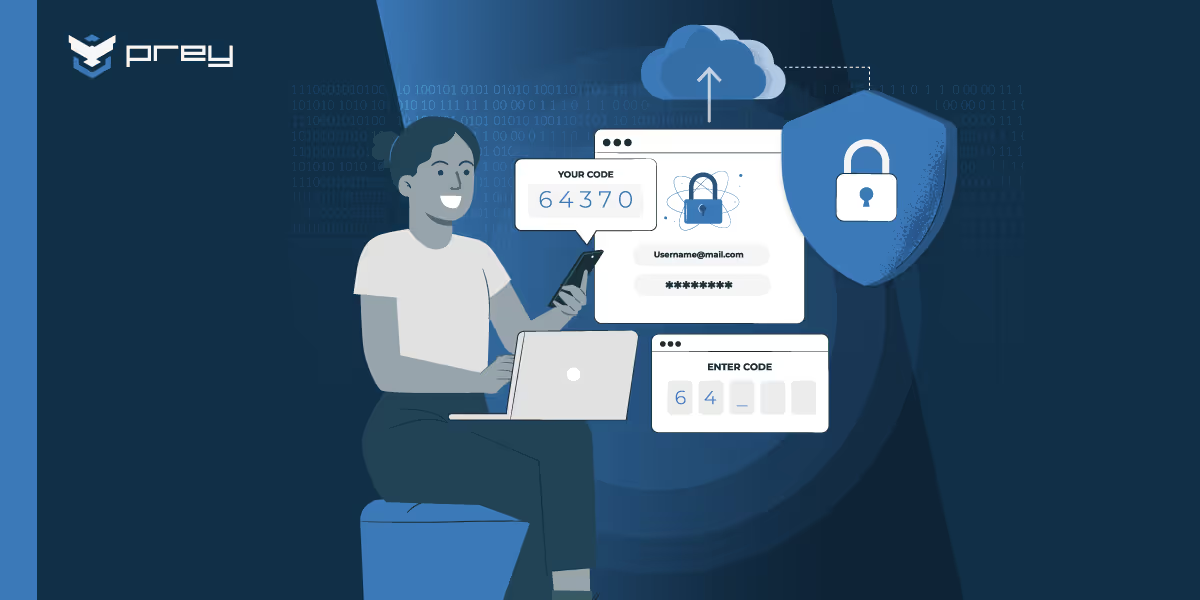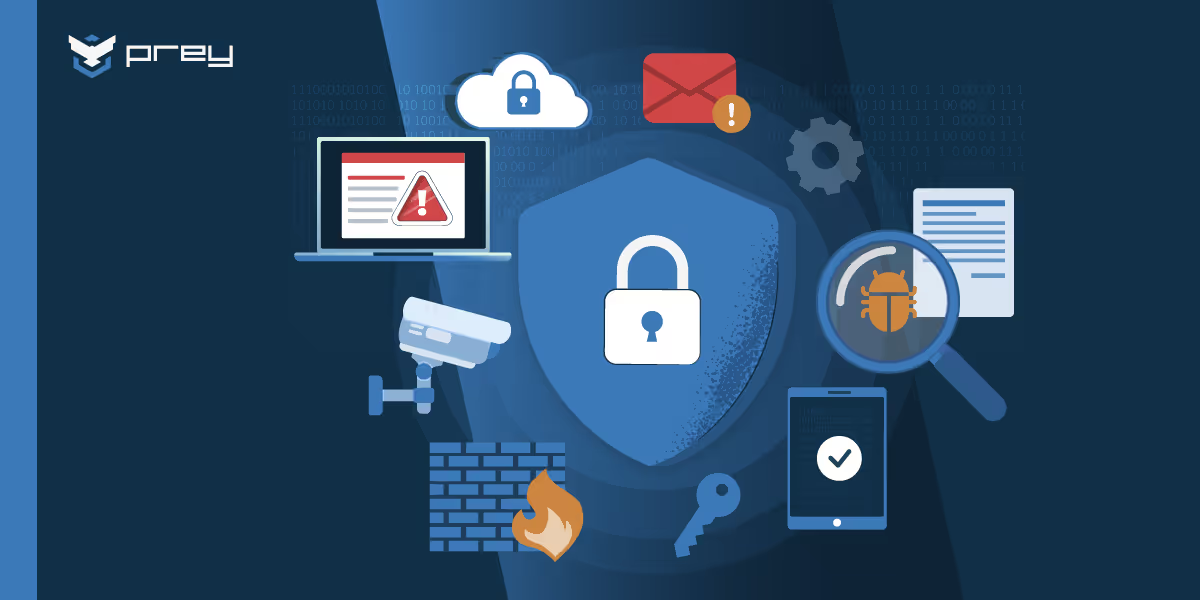Someone is hacked every 39 seconds. That was concluded by a study by Michael Cukier from the Clark School of Engineering.
According to CyberCrime Magazine, a staggering 60% of small businesses that are hacked close within 6 months.
That means that we are under a near-constant stream of attacks while we are connected to the internet. So it is imperative to your business’s success and to your own personal welfare to be protected and cautious at all times while online.
Here’s how to find out if you’ve been hacked and what you can do to stop it from becoming a bigger problem, and how to prevent it from happening in the future.
Am I Hacked?: Clear Warning Signs
Sometimes, it’s obvious. Your phone won’t start or your computer is missing files. Other times, it’s more subtle.
Here are a few indications you’ve been hacked:
- Your email has been sending messages you didn’t create
- Your passwords have changed without you knowing
- Your device is installing the software you didn’t authorize
- You get fake antivirus messages asking you to install
- Your personal data is leaked
Since there are almost endless indications of being hacked, it might be worthwhile to know how you can verify whether or not your computer and accounts have fallen victim to hacking.
How to Check if I Have Been Hacked
If you are under the impression that your computer or online account passwords have been compromised, there are several ways to check if you’ve been hacked.
- Look for suspicious activity on your accounts such as login attempts or changes to your account settings.
- Scan your email for any messages that you did not send or receive.
- If your computer has an antivirus installed, scan your computer to detect possible malware or viruses that could have been installed without you knowing. This could mean your computer has been hacked.
- Use “Have I Been Pwned” to see if any of your data has been leaked online.
Still not sure? Read here to uncover how you can tell if your phone has been hacked.
What to Do If You’ve Been Hacked – In 3 Steps
So you’ve been hacked. We wrote an entire article about this so check that out. But these are the 3 things you should do immediately if you’ve been hacked:
- Quarantine the affected PC
Disconnect from all networks and turn off all wireless connections such as Bluetooth and wifi. - Change your passwords
Change your password from an unaffected device. Consider using a password manager to make the process easier. - Alert those connected to you
Anyone who may be affected should know as soon as possible to avoid interacting with messages coming from their devices.
Bonus: Immediately Alert Your IT Department
If your work device has been compromised then you need to immediately alert your work IT department or manager. A compromised work computer could have serious business implications and you want to mitigate the damage as much as possible.
Types of Hacks
Hacking is a lot less glamorous than it appears in the movies. In fact, the very best hacks are so skillfully done that the victim doesn’t even know they’ve been compromised.
There are many types of hacks, some are personal and targeted (your own devices and information only), while others can be widespread and are caused by data breaches. If a company that holds your information unintentionally leaves its data vulnerable, it can lead to a data breach.
There are several different types of hacks:
Email Hacks
In your Apple or Google email settings, you’re able to check the physical locations where your account has been logged in. If you check the locations and see someone logging in from another state or country, that likely means you’ve been hacked.
How to Tell if My Email is Hacked?
In some instances, the usernames and passwords of a large number of accounts will be shared online. Websites like HaveIBeenPwned.com let you search for your email address to see if your account info is listed among these hacked profiles.
Social Media Hacks
Social media accounts reveal hacking through sign-in locations. If your social media account password or email changes without your knowledge, you’ve almost certainly been hacked.
The same applies if:
- Your name or birthday changes
- Friend requests were made to people you don’t know
- Messages have been sent from your account that you don’t recognize
- Your account published posts you’ve never seen before
Mobile Device Hacks
Your mobile device might be hacked if you start to see unfamiliar apps installed. If your phone dies too quickly, that might indicate malware running in the background and using up your battery.
Or, you may get unexpected packages sent to your home. All of these symptoms suggest mobile device hacking.
Computer Hacks
It’s virtually certain that your computer has been hacked at one point or another without your knowledge. PCs, in particular, have been attractive targets for viruses and malware for at least two decades.
How do you know your computer has been hacked? Sometimes, it’s clear. Maybe it won’t start or your files are frozen by ransomware.
Other times, computer hacking is more subtle. For example, say your computer seems sluggish. You might have malware on your system that’s slowing you down but still enabling you to use the machine.
Examples include crypto-currency “mining” software and various forms of spyware that watch where you browse in order to send you spam messages.
Banking Hacks
Banking systems are typically harder to hack, but it certainly still happens.
Signs of bank hacking include unknown charges and fund transfers, but there are other early warning signs. If you don’t receive a statement in the mail on its expected date, that is a cause for alarm.
How to Check if My Password is Compromised
HaveIBeenPwned is also a great resource for this, but there are quite a few ways to see if your passwords have been compromised.
If you use Google Chrome as a browser, you can use Chrome’s Password Checkup.

It’s a great tool that is super easy to use. Chrome will let you know exactly which passwords are compromised and need updating (see below).

Apple has similar features for both their mobile devices. Just got to the Settings button, then Passwords. Select Detect Compromised Passwords and you’re all set!

The Consequences That Come With Getting Hacked
Getting hacked can result in a series of unfortunate consequences for individuals and businesses that include but aren’t limited to
- Identity Theft
- Financial Losses
- Tainted reputation
- Loss of sensitive data or customer information
Because of this, it’s important you take extensive measures to prevent yourself or your business from falling victim to this crime.
How to Prevent Hacking: 8 Ways
You have the ability to stop hackers, or at least make things a lot harder for them. To do this, keep in mind the following steps:
Prioritize email and password security
Use strong passwords or phrases. Make sure your security questions are not easily guessable. We also recommend having a password manager that is reliable and highly protected. This can allow you to have access to passwords and create difficult passwords that are not easy to guess. Additionally, a password manager will allow you to test your password's strength. The stronger the password, the more protected you are.
Frequently Check for Compromised Passwords
In order to maintain the security of your accounts, it’s crucial to stay on top of any compromised passwords. Hackers are able to use sophisticated methods to gain access to your account. This can lead to potential identity theft, financial fraud, and a series of other serious consequences.
Update your software regularly
Developers add security features and patches over time, so make sure your apps and software are up to date.
Be careful about your online behavior
Secure browsing practices are recommended. Look for the “Secure” indication on sites that you visit and especially sites where you shop (On Chrome, it looks like a little green padlock).
Don’t trust Public Wi-Fi for sensitive work
Using public WiFi opens you up to a multitude of threats – yet 75% of people admit to checking their email on a public connection.
To avoid threats, never use public Wi-Fi to shop, use your credit cards, or log in to banks or financial institutions, or any other sensitive sites.
Also, monitor your Bluetooth connection when in public places.
Monitor what you share on social media
Social sharing can expose you to risk. When hackers can learn details of your life, they can impersonate you.
For example, what’s your mother’s maiden name? Some Facebook profiles literally spell this out for hackers to steal. Physical safety is also a consideration here… if you post about your vacation, you could be telling burglars you’re not at home.
Careless oversharing on social media can also increase your risk of being the victim of a social engineering attack. These attacks might involve a hacker impersonating a friend or coworker in order to manipulate you into disclosing private information, login credentials, or even sending money.
Be aware of “grandparent hacks”
Older people are frequently targeted in so-called “grandparent” hacks.
In a grandparent hack, the hacker identifies a younger person’s age and name on social media. They use this information to contact their older family member, claiming to be the grandchild. The hacker will make a claim by mentioning they are stuck in a foreign city and need a wire transfer to get home.
Be aware of attacks like these and be careful about the information you share on social media.
Invest in Breach Detection Tools
Breach detection tools are designed to look for signs of malicious activity and alert you of any potential threats. Many of these tools use AI and machine learning to analyze network traffic for patterns and anomalies. These tools can provide an extra layer of security and allow individuals and businesses to be proactive in hacking threats.
Takeaways
If your computer is running sluggishly, downloading strange programs, or if messages are coming from the accounts that you didn’t send, then you may have been hacked.
You will be unable to avoid some hacks, but your level of vulnerability much of the time depends on how well you secure yourself. The trick is to adopt strong security habits and avoid situations where you open yourself up to risk.
By learning to prevent what’s avoidable, you can mitigate most of what’s inevitable.






